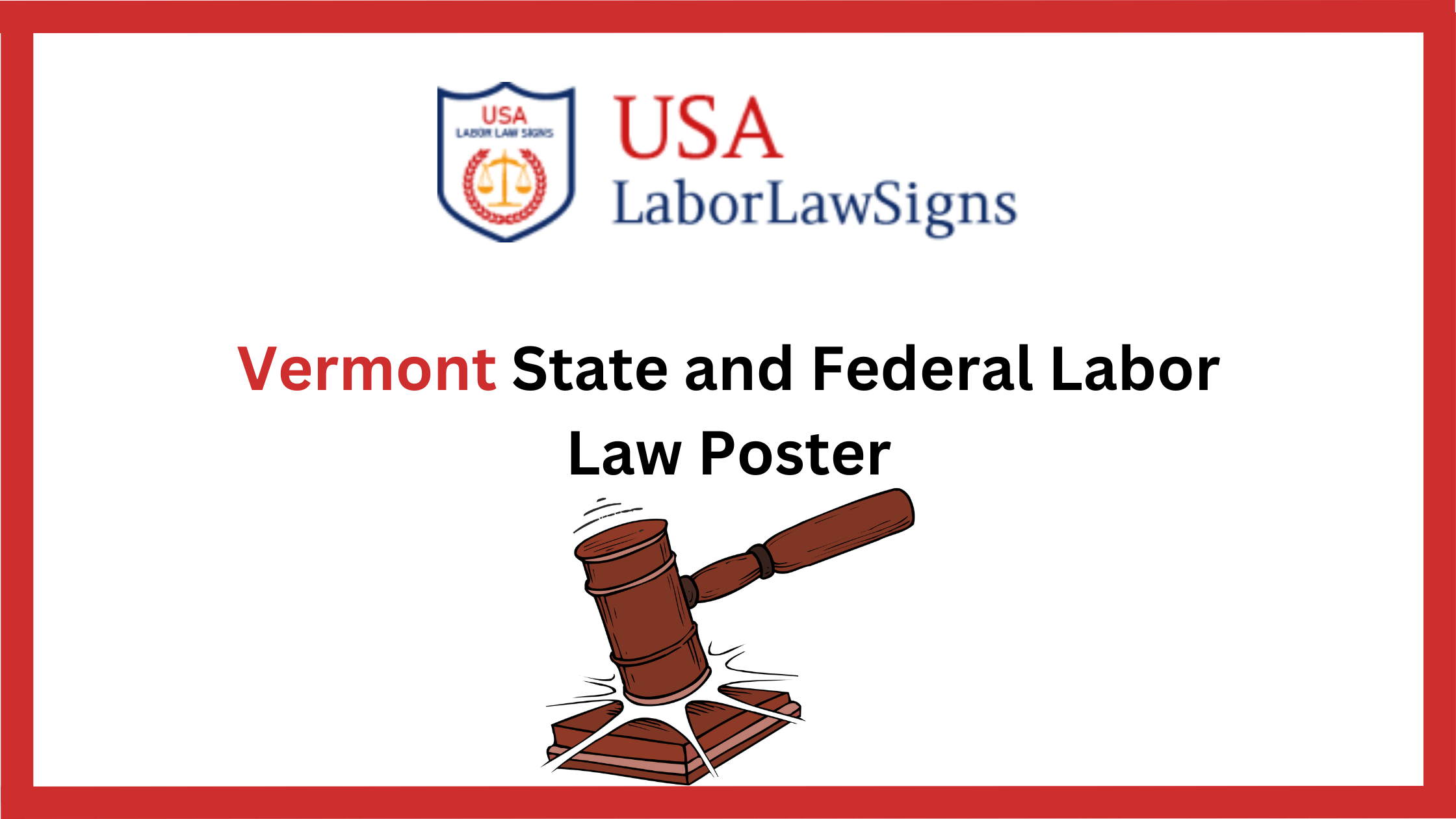How Massachusetts Labor Law Posters Help You Avoid Legal Issues?
Labor laws are designed to protect the rights of both employees and employers, ensuring fair and equitable treatment in the workplace. Massachusetts, like many other states, has its own set of labor laws that must be followed by businesses operating within its jurisdiction. One crucial tool in maintaining compliance and avoiding legal issues is the Massachusetts Labor Law Poster.
This article will delve into the significance of these posters, explaining how they aid businesses in staying up-to-date with labor laws, promoting a safe and fair work environment, and mitigating potential legal risks.
Understanding Massachusetts Labor Laws
To comprehend the importance of the Massachusetts Labor Law Poster, it is crucial first to understand the labor laws applicable in the state. Massachusetts has numerous laws and regulations governing various employment aspects, including minimum wage, overtime, anti-discrimination, safety, and workers’ compensation.
For instance, the Massachusetts Minimum Wage Law sets the minimum hourly rate for employees and mandates employers to display this information in a conspicuous place. Similarly, laws such as the Massachusetts Paid Family and Medical Leave Act, the Wage Act, and the Equal Pay Act have specific requirements that employers must comply with to avoid legal penalties.
The Role of Massachusetts Labor Law Posters
The Massachusetts Labor Law Poster serves as a comprehensive and easily accessible resource for both employers and employees. These posters contain essential information about state labor laws, including employee rights, wage rates, working conditions, safety guidelines, and anti-discrimination policies.
By displaying these posters prominently in the workplace, businesses fulfill their obligation to inform employees about their rights and responsibilities.
Promoting Compliance
Labor law posters’ primary function is ensuring compliance with state regulations. They constantly remind employers to adhere to specific laws, such as minimum wage requirements or mandatory breaks, preventing inadvertent violations due to oversight or lack of awareness. Employers failing to comply with labor laws risk facing penalties, fines, and lawsuits. The Massachusetts Labor Law Poster helps businesses avoid these legal pitfalls by providing a convenient reference for staying informed and compliant.
Informing Employees
The Massachusetts Labor Law Poster assists employers and plays a crucial role in informing employees about their rights and protections under state labor laws. Employees are made aware of their entitlements by clearly displaying the poster in visible locations, such as break rooms or near time clocks, ensuring transparency and promoting a fair working environment. This transparency can increase employee satisfaction and help prevent potential disputes or grievances.
Maintaining an Updated Workplace
Labor laws are subject to change and updates, with new legislation often introduced to address emerging workplace issues or to improve existing protections. Employers need to stay updated on these changes to ensure ongoing compliance. The responsible authorities regularly update the Massachusetts Labor Law Poster, reflecting any revisions to labor laws. This helps businesses keep pace with evolving regulations and avoid legal consequences resulting from outdated information.
Time and Cost Efficiency
By relying on the Massachusetts Labor Law Poster, businesses save valuable time and resources that would otherwise be spent independently researching and tracking legislative changes. Instead, they can trust the poster as a reliable source of up-to-date information, allowing them to focus on core operations while maintaining compliance effortlessly.
Legal Protection
In the event of a labor law violation claim or legal dispute, displaying the Massachusetts Labor Law Poster can indicate that the employer made a good faith effort to comply with the law. This can help demonstrate the employer’s commitment to employee rights and potentially mitigate legal penalties or damages.
Conclusion
Complying with Massachusetts labor laws is crucial for businesses operating. The Massachusetts Labor Law Poster is an indispensable tool that assists employers in maintaining compliance, promoting a fair work environment, and minimizing legal risks.
By displaying these posters prominently, businesses not only fulfill their legal obligations but also foster transparency, inform employees about their rights, and demonstrate their commitment to upholding labor standards. Staying updated on labor laws through the Massachusetts Labor Law Poster ensures a smooth and lawful operation, protecting employers and employees.
Read Realated: Kankas Labor Law Poster: Your Ultimate Compliance Solution










